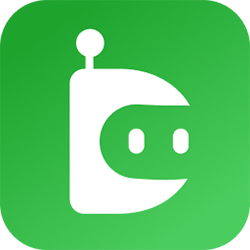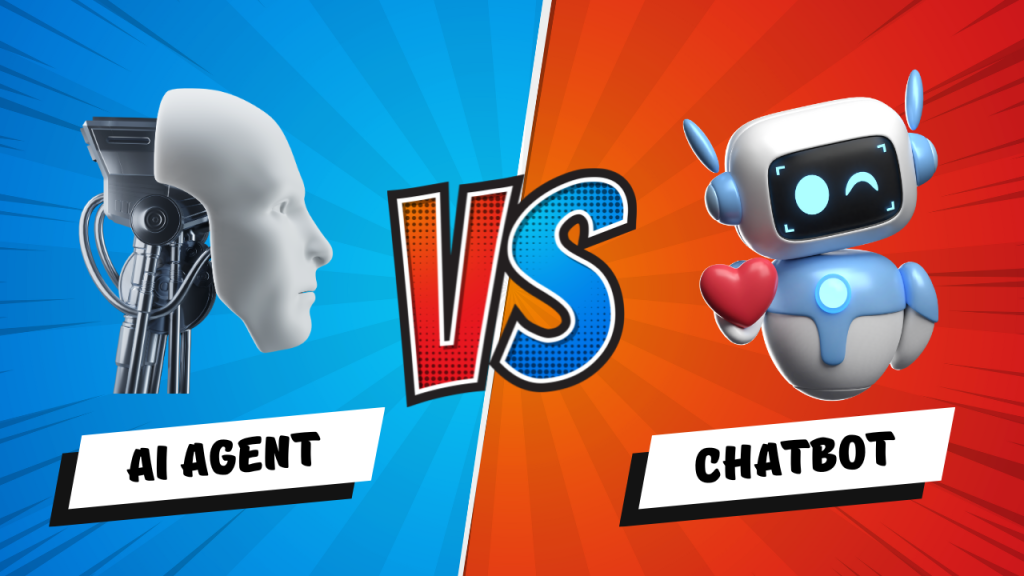For years, businesses have relied on chatbots as their go-to tool for automating customer conversations. They were cheap, simple, and solved the problem of answering repetitive questions. But in 2025, a new technology is rapidly gaining ground: AI Agents. Unlike chatbots, which mostly stick to predefined rules, AI agents think, act, and adapt like autonomous digital workers. They are shaping the way businesses handle customer support, sales, operations, and even decision-making.
If you’re wondering whether it’s time to upgrade your chatbot strategy, understanding the difference between chatbots and AI agents is essential. In fact, many companies now work with an experienced AI Agent Development Company to design agents that can deliver business results far beyond what chatbots ever could.
What Are Traditional Chatbots?
Traditional chatbots were the first attempt at automating human-to-computer conversations. At their core, they are:
- Rule-based systems that function on pre-programmed scripts.
- Keyword-dependent tools that trigger responses when certain phrases are detected.
- Single-purpose assistants that mostly help with basic FAQs or linear tasks.
For instance, if you visit an airline’s website and type “Check flight status”, the chatbot can fetch and display information about your flight. But if you ask it to rebook your ticket with flexible dates, it will likely fail because it doesn’t have the intelligence to process multi-step instructions.
Strengths of Chatbots:
- Available 24/7, reducing dependency on human agents.
- Cost-effective to build and maintain.
- Handle repetitive, low-value queries efficiently.
Weaknesses of Chatbots:
- Unable to process context or intent beyond their script.
- Cannot handle unexpected or complex questions.
- Provide static, repetitive, and often impersonal user experiences.
In short, chatbots are reliable for surface-level tasks but struggle when conversations move beyond simple, rule-driven interactions.
What Are AI Agents?
AI Agents take the idea of conversational automation to the next level. They are trainable, adaptive, and goal-driven entities that function more like digital employees than static software.
Unlike chatbots, AI agents rely on Large Language Models (LLMs), machine learning, and contextual reasoning to deliver dynamic outcomes. They don’t just respond — they analyze, decide, and act.
Key characteristics of AI agents include:
- Context Awareness: They remember past interactions, analyze customer intent, and adapt their responses accordingly.
- Continuous Learning: With every conversation, they refine their performance, becoming smarter over time.
- Autonomy: They can complete tasks independently, from booking services to initiating workflows.
- Decision-Making: They weigh multiple variables before acting, much like a human employee.
Examples of AI Agents in Action:
- Retail: An AI shopping assistant doesn’t just answer “Do you have this product in stock?” — it checks inventory, suggests alternatives, applies discounts, and completes the order.
- Healthcare: An AI patient agent assists with symptom checking, schedules appointments, and follows up with treatment reminders.
- Finance: AI financial advisors proactively suggest savings strategies, track expenses, and even flag suspicious activity in real time.
These agents are not simply responding; they are actively executing tasks and achieving goals.
AI Agents vs. Traditional Chatbots: The Key Differences
| Feature | Chatbots (Traditional) | AI Agents (Next-Gen) |
| Intelligence Level | Predefined, rule-based | Adaptive, context-aware |
| Tasks Handled | Simple FAQs, scripted flows | Multi-step workflows, decision-making |
| Personalization | Limited, generic responses | Highly personalized, dynamic interactions |
| Learning | Cannot learn; requires manual updates | Continuous self-learning, trainable |
| Integration | Works with a single app or database | Integrates across apps, CRMs, workflows |
| ROI Impact | Cost-saving (reduces staff burden) | Revenue-driving (efficiency + growth) |
Why Businesses Should Care
The shift from chatbots to AI agents isn’t just technological — it’s strategic. Businesses adopting AI agents aren’t just saving money; they’re driving growth.
Here’s why it matters:
- Customer Experience: AI agents deliver human-like conversations, adapt tone, and resolve queries in real time. No more frustrating dead-ends.
- Efficiency: Agents handle multi-step processes like returns, billing, or lead qualification without needing handoffs.
- Scalability: Unlike human teams, AI agents can manage thousands of interactions simultaneously.
- ROI: Where chatbots reduce support costs, AI agents actively increase revenue by upselling, cross-selling, and personalizing offers.
Industries leading the adoption:
- Healthcare: For patient triage and scheduling.
- Fintech: For financial advisory and fraud alerts.
- E-commerce: For personalized product recommendations.
- Education: For tutoring, assessments, and learning support.
Real-World Examples
- Traditional Chatbot Example:
Many e-commerce sites use chatbots that only help with order tracking. They can confirm “Your package will arrive in 3 days” but can’t take any further action. - AI Agent Examples:
- H&M’s AI Shopping Assistant – goes beyond answering queries; it curates fashion recommendations, checks stock, and processes purchases.
- Bank of America’s “Erica” – helps customers budget, provides financial insights, and even alerts users of unusual transactions.
- Lufthansa’s AI Support Agent – assists passengers with rebooking flights during disruptions, reducing customer stress and improving loyalty.
These examples show the leap from answering questions to taking meaningful action.
Will AI Agents Replace Chatbots?
Not entirely. Chatbots still have their place. For simple FAQs or small businesses, they’re cost-effective and practical. But as customer expectations rise and workflows grow complex, AI agents will dominate.
Future Outlook (2025 and beyond):
- Chatbots = basic automation tools.
- AI Agents = strategic business drivers.
Forward-thinking organizations will use a hybrid approach, keeping chatbots for lightweight tasks while deploying AI agents for deeper, high-value interactions.
Conclusion
The difference between chatbots and AI agents comes down to one thing: capability. Chatbots answer. AI agents act. While chatbots will continue to serve simple needs, AI agents are poised to reshape how businesses interact with customers, manage workflows, and drive ROI.
As industries become more competitive, investing in AI agents isn’t just an upgrade — it’s a necessity. The companies that start working with an expert AI Agent Development Company today will be the ones leading the customer experience revolution tomorrow.

